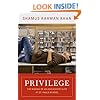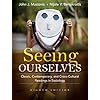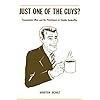
Gang Leader for a Day
and over one million other books are available for Amazon Kindle. Learn more


Flip to back
Flip to front

Gang Leader for a Day: A Rogue Sociologist Takes to the Streets Paperback – December 30, 2008
See all 14 formats and editions
Hide other formats and editions
| Amazon Price | New from | Used from |
|
Mass Market Paperback
"Please retry"
|
—
|
$14.00 | $11.39 |
|
Audio CD, Audiobook, Unabridged
"Please retry"
|
$20.34 | $4.50 |
|
Unknown Binding
"Please retry"
|
—
|
$13.25 | $6.75 |

$11.33
FREE Shipping on orders over $35.
In Stock.
Ships from and sold by Amazon.com.
Gift-wrap available.
NO_CONTENT_IN_FEATURE
Start reading Gang Leader for a Day on your Kindle in under a minute.
Don't have a Kindle? Get your Kindle here, or download a FREE Kindle Reading App.
Don't have a Kindle? Get your Kindle here, or download a FREE Kindle Reading App.
Best Books of the Month
Want to know our Editors' picks for the best books of the month? Browse Best Books of the Month, featuring our favorite new books in more than a dozen categories.
Want to know our Editors' picks for the best books of the month? Browse Best Books of the Month, featuring our favorite new books in more than a dozen categories.
Product Details
Would you like to update product info or give feedback on images?.
|
Editorial Reviews
From Publishers Weekly
Honest and entertaining, Columbia University professor Venkatesh vividly recounts his seven years following and befriending a Chicago crack-dealing gang in a fascinating look into the complex world of the Windy City's urban poor. As introduced in Steven D. Levitt and Stephen J. Dubner's bestseller, Freakonomics, Venkatesh became involved with the Black Kings—and their charismatic leader J.T.—as a first-year doctoral student at the University of Chicago. Sent to the projects with a multiple-choice test on poverty as his calling card, Venkatesh was, to his surprise, invited in to see how the drug dealers functioned in real life, from their corporate structure to the corporal punishment meted out to traitors and snitches. Venkatesh's narrative breaks down common misperceptions (such as all gang members are uneducated and cash rich, when the opposite is often true), the native of India also addresses his shame and subsequent emotional conflicts over collecting research on illegal activities and serving as the Black Kings' primary decision-maker for a day—hardly the actions of a detached sociological observer. But overinvolved or not, this graduate student turned gang-running rogue sociologist has an intimate and compelling tale to tell. (Jan.)
Copyright © Reed Business Information, a division of Reed Elsevier Inc. All rights reserved. --This text refers to an out of print or unavailable edition of this title.
Copyright © Reed Business Information, a division of Reed Elsevier Inc. All rights reserved. --This text refers to an out of print or unavailable edition of this title.
From School Library Journal
Adult/High School—As a young graduate student fresh off an extended stint following the Grateful Dead, Venkatesh began studying urban poverty. With a combination of an ethnographer's curiosity about another culture and some massive naïveté, he gathered firsthand knowledge of the intricacies of Chicago's Robert Taylor projects. Early on, he met a megalomaniac gang leader known here as J.T., who became his mentor. Venkatesh observed and learned how the crack game works, and how many have their fingers in the pie and need life to remain the way it is. He observed violence, corruption, near homelessness, good cops, bad cops, and a lot of neglect and politics-as-usual. He made errors in judgment—it took a long time for his street smarts to catch up to his book smarts—but he tells the story in such a way as to allow readers to figure out his missteps as he did. Finally, as the projects began to come down, Venkatesh was able to demonstrate how something that seems positive is not actually good for everyone. The first line in his preface, "I woke up at about 7:30 a.m. in a crack den," reflects the prurient side of his studies, the first chapter title, "How does it feel to be black and poor?" reflects the theoretical side, and both work together in this well-rounded portrayal.—Jamie Watson, Harford County Public Library, MD
Copyright © Reed Business Information, a division of Reed Elsevier Inc. All rights reserved. --This text refers to an out of print or unavailable edition of this title.
Copyright © Reed Business Information, a division of Reed Elsevier Inc. All rights reserved. --This text refers to an out of print or unavailable edition of this title.
More About the Author
Sudhir Venkatesh is William B. Ransford Professor of Sociology & the Committee on Global Thought at Columbia University in the City of New York. He served as a Senior Advisor to the Department of Justice from 2009-2012.
Related Media
Customer Reviews
Most Helpful Customer Reviews
201 of 219 people found the following review helpful
By
Tethys
VINE VOICE on March 16, 2008
Format: Hardcover
20 Comments
Sending feedback...
This book is definitely an interesting read, particularly if you are not from the wrong side of the tracks. For most middle and upper class readers, I believe this is an insightful and voyueristic view of the lives that are so often forgotten about in this country.
Having grown up on the wrong side of the tracks and having lived in the projects for a time, I found myself deeply conflicted by the author's portrayal of others and himself. In the end he is only somewhat honest with himself about being the biggest hustler of all in the book. How exactly do you eat people's food and sit on their couches and follow them around for six years and in the end say you weren't even friends? Is this simply artificial distance inserted to make himself seem more scholarly, or does he really feel this way about the people who greatly contributed to his career? He tries to distinguish himself from the very people he interacted with and at times participated in morally questionable behavior with by describing himself as dressing appropriately for an Ivy League professor while returning to visit the ghetto. This description of himself at the end of the book brought home sharply to me the reality that most people will take a look at this world, like the author, and then put it down and walk away from the very real needs that real Americans have and it left me frustrated and angry. For every person who makes it out, there are hundreds left behind and most people are unwilling or unable to do anything except close a book and forget. I highly question that anything will be done as a result of this work to significantly improve impoverished Americans' situations, a view that the author confirms.Read more ›
Having grown up on the wrong side of the tracks and having lived in the projects for a time, I found myself deeply conflicted by the author's portrayal of others and himself. In the end he is only somewhat honest with himself about being the biggest hustler of all in the book. How exactly do you eat people's food and sit on their couches and follow them around for six years and in the end say you weren't even friends? Is this simply artificial distance inserted to make himself seem more scholarly, or does he really feel this way about the people who greatly contributed to his career? He tries to distinguish himself from the very people he interacted with and at times participated in morally questionable behavior with by describing himself as dressing appropriately for an Ivy League professor while returning to visit the ghetto. This description of himself at the end of the book brought home sharply to me the reality that most people will take a look at this world, like the author, and then put it down and walk away from the very real needs that real Americans have and it left me frustrated and angry. For every person who makes it out, there are hundreds left behind and most people are unwilling or unable to do anything except close a book and forget. I highly question that anything will be done as a result of this work to significantly improve impoverished Americans' situations, a view that the author confirms.Read more ›
Thank you for your feedback.
If this review is inappropriate, please let us know.
Sorry, we failed to record your vote. Please try again
124 of 134 people found the following review helpful
By
Kerry Walters
VINE VOICE on January 11, 2008
Format: Hardcover
3 Comments
Sending feedback...
Thus Reggie, a Chicago gang member, warned the author of this book. Thank goodness, Venkatesh wasn't frightened away, and the consequence is this narrative about a Chicago crack-dealing gang.
I first learned something about life in a Chicago housing project when I read David Isay's heartbreaking Our America: Life and Death on the South Side of Chicago (1999), and something about the street drug trade in David Simons and Edward Burns' grueling The Corner: A Year in the Life of an Inner-City Neighborhood (1998). Both have become classics. Sudhir Venkatesh's Gang Leader for a Day is, I believe, destined to join them as an on-the-spot narrative of gang culture of Chicago. Some of the people whose lives he tracks--J.T., Clarisse, Mama and Pops Patton, Reggie, Millie, T-Bone--grow on you until you feel as if you actually know them.
While a graduate student at the University of Chicago, weary of cold statistical analysis, Venkatesh began hanging out with the Black Kings, a crack-selling gang who headquartered in the Robert Taylor Homes projects. He wanted to get in touch with the gang subculture through direct observation. He entered into the project pretty naive and just a bit too full of himself. Seven years later, after following the Black Kings and establishing a relationship with their leader, one J.T., the things he'd seen and heard made him a lot more streetwise and a little less cocky.
During his seven-year study, "Mr. Professor," as J.T.'s mother initially called Venkatesh, learned that Chicago gangs, or at least J.T.'s outfit, lived in a culture of violence and machismo, but also functioned in an unexpected way as police in their own territory. From the perspective of society, they were lawbreakers.Read more ›
I first learned something about life in a Chicago housing project when I read David Isay's heartbreaking Our America: Life and Death on the South Side of Chicago (1999), and something about the street drug trade in David Simons and Edward Burns' grueling The Corner: A Year in the Life of an Inner-City Neighborhood (1998). Both have become classics. Sudhir Venkatesh's Gang Leader for a Day is, I believe, destined to join them as an on-the-spot narrative of gang culture of Chicago. Some of the people whose lives he tracks--J.T., Clarisse, Mama and Pops Patton, Reggie, Millie, T-Bone--grow on you until you feel as if you actually know them.
While a graduate student at the University of Chicago, weary of cold statistical analysis, Venkatesh began hanging out with the Black Kings, a crack-selling gang who headquartered in the Robert Taylor Homes projects. He wanted to get in touch with the gang subculture through direct observation. He entered into the project pretty naive and just a bit too full of himself. Seven years later, after following the Black Kings and establishing a relationship with their leader, one J.T., the things he'd seen and heard made him a lot more streetwise and a little less cocky.
During his seven-year study, "Mr. Professor," as J.T.'s mother initially called Venkatesh, learned that Chicago gangs, or at least J.T.'s outfit, lived in a culture of violence and machismo, but also functioned in an unexpected way as police in their own territory. From the perspective of society, they were lawbreakers.Read more ›
Thank you for your feedback.
If this review is inappropriate, please let us know.
Sorry, we failed to record your vote. Please try again
68 of 85 people found the following review helpful
By
Snugs McKay
on July 20, 2009
Format: Paperback
1 Comment
Sending feedback...
Ever loved a song so much, you wish it had been written by a better band? That's what reading this book is like: Venkatesh gets three stars on the strength of his premise alone, but it only takes him about 4 chapters to spoil what he began. Here's what you can expect, once that 100 page honeymoon is over...
1.) Dialogue so false it makes George Lucas sound like a naturalistic writer. No disclaimer can excuse the dead ear Venkatech reveals whenever called upon to recount spoken words. The people with whom he interacts are voiced as sitcom-level caricatures; we meet the wise old woman who takes no guff, the insecure young tough, the smooth elder thug who maintains his rep with almost professional detachment, etc.
2.) A total lack of Academic responsibility. I'm not talking, as others have, about the moral questions raised by the author's witness of so many crimes - that's something you either forgive or not, before picking up the book. I'm talking about the fact that, for any given phenomenon, he only really entertains one theory, or one frame of explanation. The view of ghetto life he formed in the classroom is not one he's prepared to change, and he's really only interested in gathering details to fill out that view. But such is the problem - if you're not ready to change your mind on fundamental questions, then don't call it "research".
3.) An often shocking whiff of upper-middle class condescension. There is no easy way to this, so I'll just say it: the author treats his mostly black subjects with a smugness that is sometimes quite disgusting. It's a disguised, liberal kind of smugness, but it reveals what kind of expectations Venkatesh brought with him to the experience. He fawns over his subjects (never worse than with Ms.Read more ›
1.) Dialogue so false it makes George Lucas sound like a naturalistic writer. No disclaimer can excuse the dead ear Venkatech reveals whenever called upon to recount spoken words. The people with whom he interacts are voiced as sitcom-level caricatures; we meet the wise old woman who takes no guff, the insecure young tough, the smooth elder thug who maintains his rep with almost professional detachment, etc.
2.) A total lack of Academic responsibility. I'm not talking, as others have, about the moral questions raised by the author's witness of so many crimes - that's something you either forgive or not, before picking up the book. I'm talking about the fact that, for any given phenomenon, he only really entertains one theory, or one frame of explanation. The view of ghetto life he formed in the classroom is not one he's prepared to change, and he's really only interested in gathering details to fill out that view. But such is the problem - if you're not ready to change your mind on fundamental questions, then don't call it "research".
3.) An often shocking whiff of upper-middle class condescension. There is no easy way to this, so I'll just say it: the author treats his mostly black subjects with a smugness that is sometimes quite disgusting. It's a disguised, liberal kind of smugness, but it reveals what kind of expectations Venkatesh brought with him to the experience. He fawns over his subjects (never worse than with Ms.Read more ›
Thank you for your feedback.
If this review is inappropriate, please let us know.
Sorry, we failed to record your vote. Please try again











